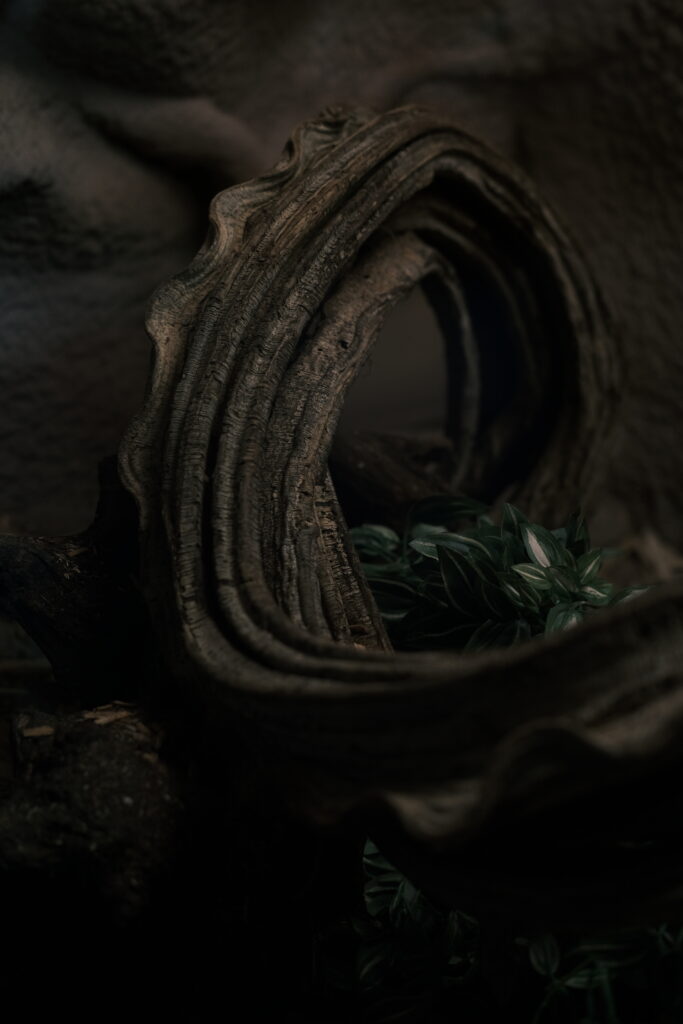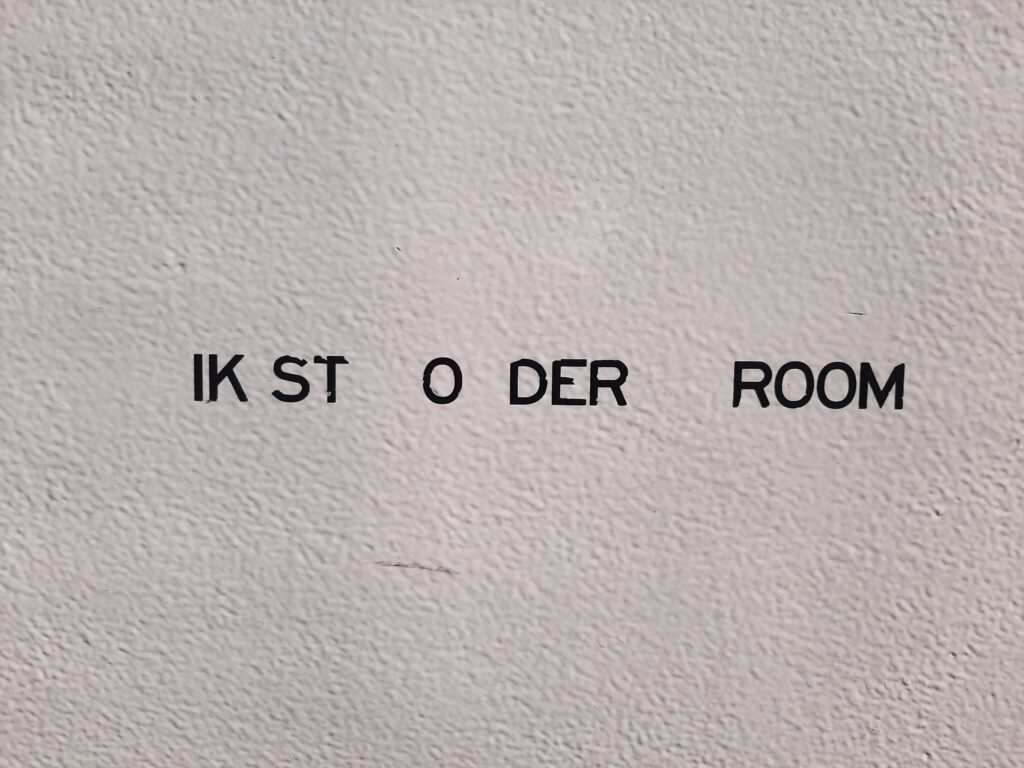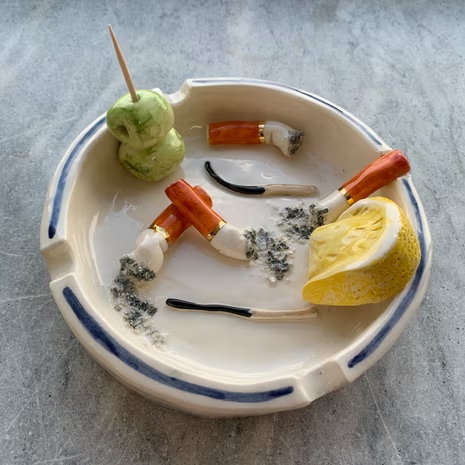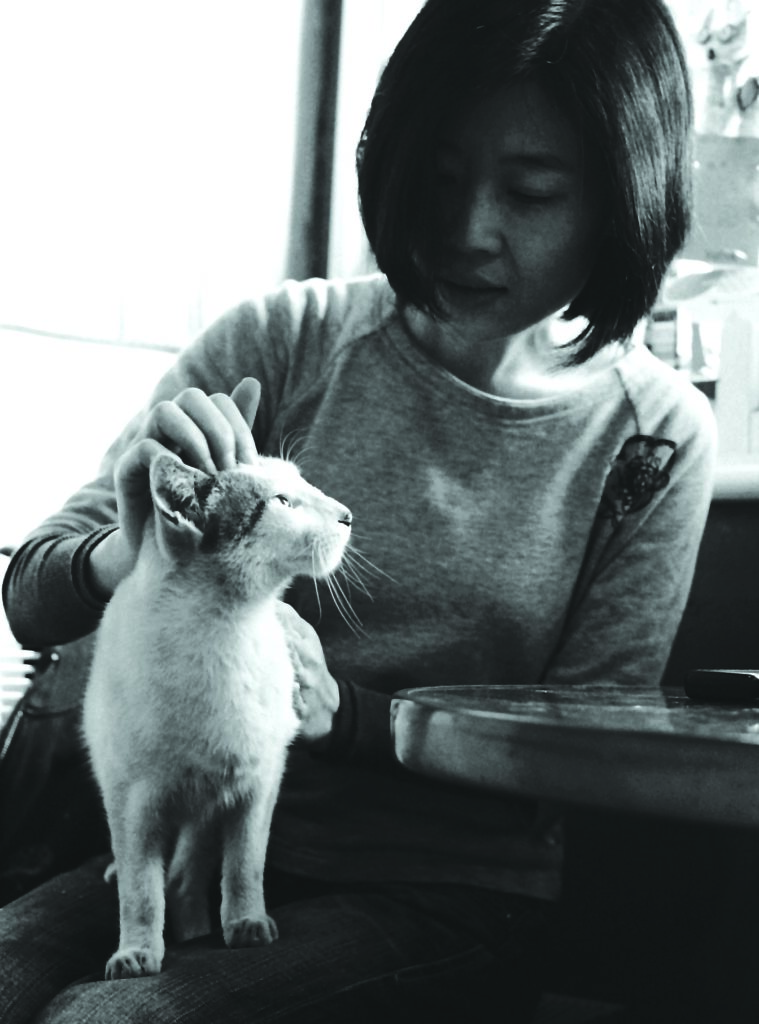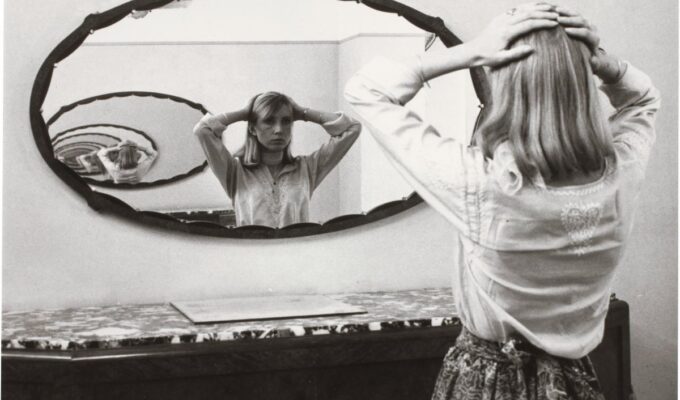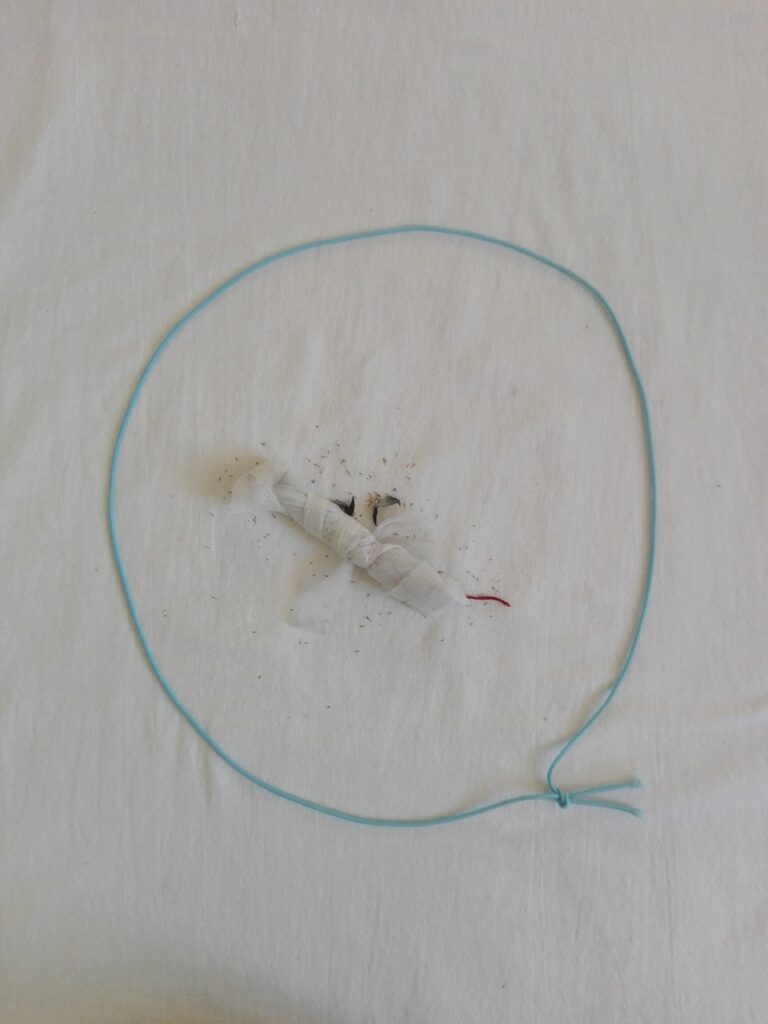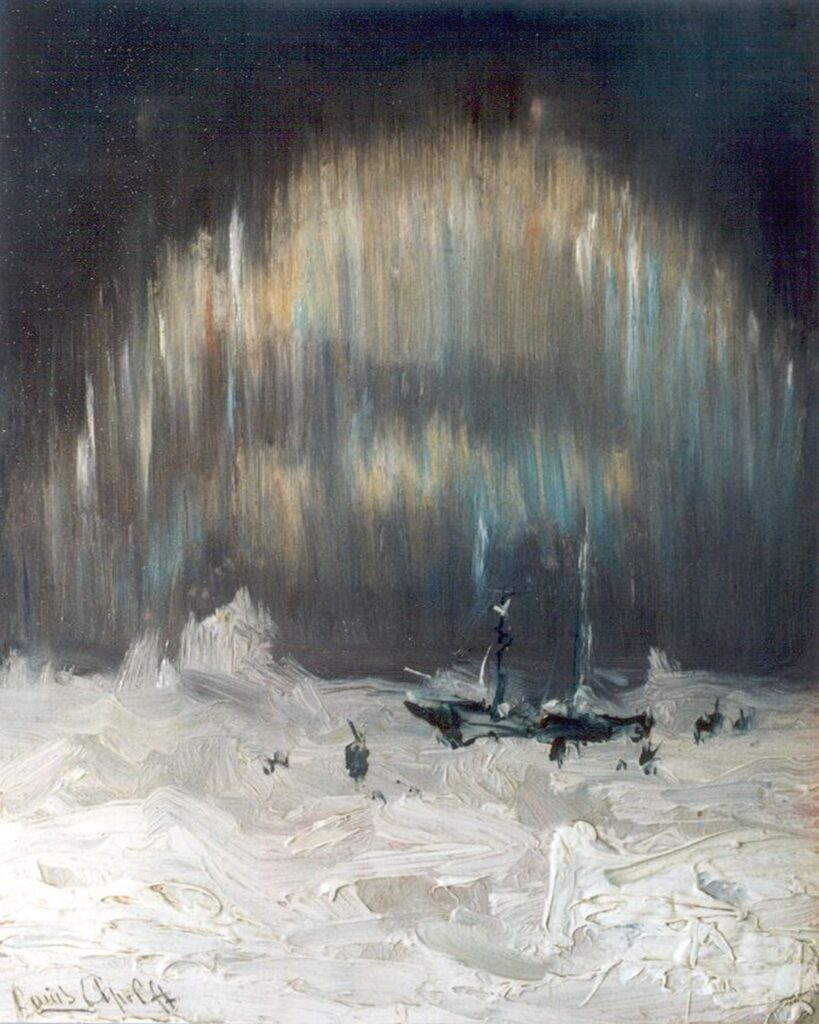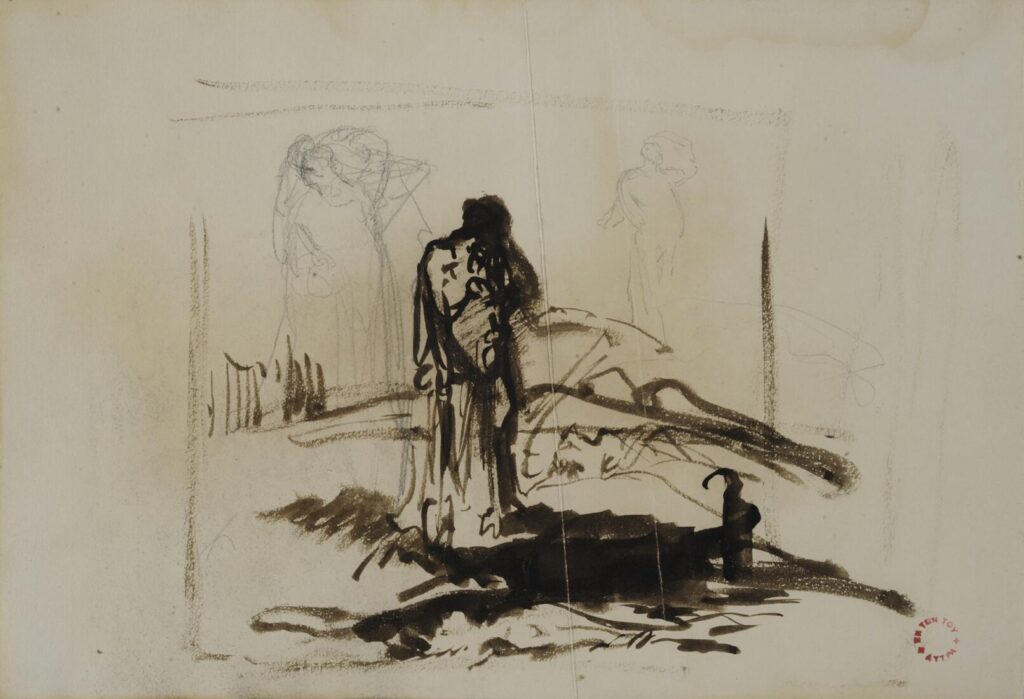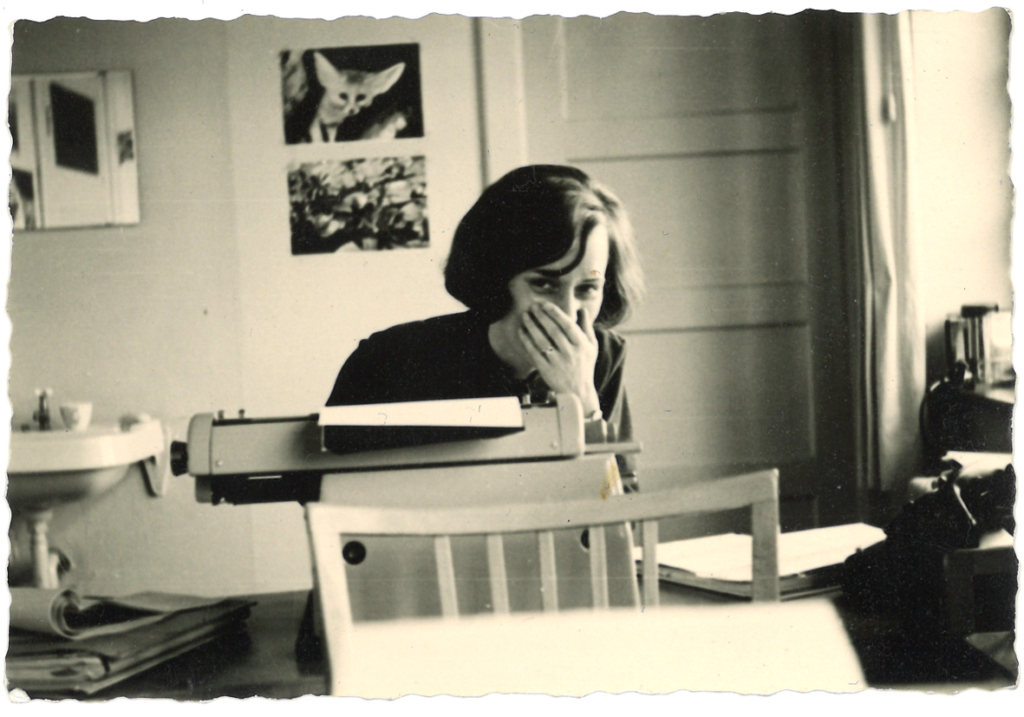This piece is part of Babelsprech International, a series created through the cooperation of Babelsprech and Hilda Magazine, in partnership with the Dutch online magazine Samplekanon, as well as Full Stop. The essay was written by Karel Piorecký for the anthology Displej-eu, curated by the magazine Psí víno and the German magazine Randnummer.
When did the present age of Czech poetry actually begin? For many readers and connoisseurs the event which imaginarily severs the present from the past is the fall of communism in November of 1989. And truly, since the end of the 80s there has been no other social, political and cultural transformation in the Czech context as fundamental. But there have been small changes, less revolutionary, but more evolutionary.
In the newly post-totalitarian 90s, Czech poetry was primarily marked by an unprecedented bewilderment about the situation of (literary) history. In a confusing clutter, the optimistic present interwove with the inglorious recent past of the so-called Normalization and a whole set of very archaic literary traditions that were suddenly publicly available, hastily published and eagerly, if rather superficially, received. The tradition of spiritual poetry turned out to be one of the most attractive, reanimated on one hand by picking up the thread from baroque poetry, and on the other by the thread of modern Catholic poetry (Pavel Petr, Petr Čichoň, Miloš Doležal, among others). Also attractive but less present in newer works was the tradition of imaginative or (neo)surrealist poetry that had also the appeal of being practiced by writers who, until recently, were forbidden fruit (Jaromír Typlt, Pavel Ctibor, Tomáš Přidal, among others). The strongest and, it could be said, standardizing line of tradition became the objective, descriptive poetry that was mainly nurtured by the (recently also forbidden) poetics of Group 42 as well as from the heritage of a so-called “everyday” poetry. Skupina 42, or Group 42, was formed by a clique of painters – including František Gross, František Hudeček, Kamil Lhoták, among others — and poets – including Ivan Blatný, Jiří Kolář, Josef Kainar — at the end of 1942. The programmatic ideal of the group, which was formulated by the literary and art critic Jindřich Chalupecký, consisted of overcoming the seclusion of modern art, to create immediate relations with everyday reality and to develop an authentic expression of existential themes. The poetics of the group was characterized by the prosaization of verse, sobriety in expression, vernacular language and fragmentation of subjects, but also in the attempt to form a new myth of the ordinary. Group 42 disappeared, however, after the accession of communism in the year 1948.
Objective expression, freed from aesthetic deformations and expressive positions in the poems of Petr Hruška, Petr Borkovec or Petr Motýl, fit well the strong desire for a so-called authentic literature that was based less on literality than on an (idea of a) direct bond between text and the realities of life, fully answered for by the writer herself and her character and moral profile. There was also a general consensus concerning the question of what relationship poetry had with an outer literary, social and political reality. Taken for granted and rarely broken was the norm of separating the political sphere from literature, presented as its deliverance from roles that had been imposed from the outside (as in the time of Normalization as well as before 1968) and therefore a chance to finally be itself.
In this typological distinction and frame of evaluation, Czech poetry crossed over the year 2000 and remained unchanged for a time. Its stability, constancy and quietude slowly transformed into a kind of rigor mortis. Yet shortly after the turn of the millennium it became clear that the voluntary or even intended and programmatic abandonment of poetry’s social function had only brought an illusionary freedom. In reality it threw poetry back into a new form of isolation: the deep indifference of the literary and culturally interested public. A search for an escape from this “ghetto”, as it had often been called at that time, became a main theme of literary discussions and polemics.
These polemics fully erupted in 2008 as the alleged crisis of Czech literature, caused by its inability to find socially relevant themes that could be presented to an audience in a both highly literary and also thrilling way, became the main theme of literary magazines. This debate was followed by another long and highly emotional conversation about commited poetry, or activist, poetry that principally lasts to this day. The consensus of contemporary Czech literature and especially poetry as being apolitical fell apart. De facto the post-totalitarian 90s had only just ended at that point and Czech poetry was beginning to emerge in its present form.
The long desired transformation around the year 2008 became apparent not only in heated polemics, but also in poetic production itself. In spring of 2008, the collection Fantasía, by the eponymous poetry collective, was released and bore witness to the atmosphere of change alongside the aforementioned discussions. The group Fantasía was essential to the development towards a performative poetry. A succession of group performances took place, in which Fantasía collaborated with progressive visual artists and musicians Darina Alster and Miki discjockey. The fact alone that this volume opened with a sort of manifesto, or declaration, of the group seemed unprecedented. In this way, the dominating opinion that a poet was not to reflect on his practice but ought to speak only in poetry was broken. Moreover, the combination of declaration and group formation recalls the historical avant-gardes that had been looked upon demeaningly during the 90s. In their declaration, Fantasía called for the “commitment of poetry to the world”, led by a “new pathos (…) bringing forth a poetry that testifies to a co-responsibility for the state of the world.”
Fantasía contributed to the rehabilitation of avant-garde connections not only through their declaration, but also through the poetic texts themselves, which are dominated by a neo-avantgardistic abundance of images, almost offset by a philosophical potential for reflection and far-reaching references to a broad register of cultural, religious and artistic traditions. This is especially true for the poet Adam Borzič, as well as for the even wilder texts of Petr Řehák. The poetry of Kamil Bouška is slightly milder in its expression — he is still partly committed to the descriptive poetry that had been dominating Czech literature in the mid-90s while tending already to a strong expressivity, drama, and dynamics of both meaning and rhythm.
In the year 2009, Násilí bez přesudků (Violence without prejudices), the début of Jan Těsnohlídek, was released and marked a further symptom of the transformation. It was, among other things, an open and critical generational expression of those young people who grew up amidst the uninhibited return of Czech society to capitalism. Again, something that had been unthinkable in the 90s – a writer can speak through his poems not only for himself, but can aspire to an expression that is more general, group specific or in a different way sociologically enriched.
Temporally the discussion about committed poetry preceded poetic practice — that is, new works in which theoretical ideas could materialize. In the beginning, Jan Těsnohlídek with his qualitatively unbalanced work was perceived as the only example. But this misrepresentation was quickly corrected, in particular thanks to a group of writers associated with the magazine Psí víno. Other poets, including Petr Štengl (volume 3+1, 2010), Ondřej Zajac and Ondřej Buddeus, also dedicated themselves to a committed poetry in this framework. Petr Štengl’s publishing house created new publishing opportunities for young writers with an inclination towards political subjects (for example the volumes Capitalist Poems [Kapitalistické básně] by Klement Václav Lakatoš and À la thèse by Roman Rops).
The outstanding figure in this circle, however, is Ondřej Buddeus. Though logically connected with a tendency towards commitment or activism, that label nevertheless does not fit him precisely. His own work and his further literary activities are characterized less by social and political commitment than by the need for a poetry which is — in the true sense of the word — contemporary. This means reflecting current principles of inter-subjective and medial communication inside digital culture, such as the transformation and uncertainty of individual and collective identity and subjectivity.
The second distinctive development that can be identified in contemporary Czech poetry is the slow emergence of conceptual writing, which spread from American centers (Kenneth Goldsmith and his milieu) into European literature, and was introduced into the Czech context mainly by Buddeus.
Another aspect of this transformation taking place in the second half of the 2000s is the quite systematic abolishment of the isolation of Czech poetry in its small linguistic context, and its contact with foreign literary happenings. Olga Pek can be identified as one of the supporters of this transformation. A poet, translator and organizer of the international multilingual Mikrofestival of Prague, Pek has profound knowledge of especially contemporary Anglo-American poetry and a consciousness about the necessity to redefine the form of lyrical subjectivity are evident in her poems, which have so far appeared only in magazines.
At this moment, as the necessity of redefining the role and function of the subject in poetic expression was becoming obvious, conceptual writing appeared in the Czech context. It makes a clear and convincing assertion: it is necessary to allow the initial idea or method of creation to have a bigger role than the subject in the structure of meaning in a given work. Where necessary, the subjectivity of the author may be fully negated by the approbation of foreign texts.
This is a form of experimental work that is linked to historical avant-gardes and refers especially to the poetic experiments of the 1960s. Again, a blind spot is being filled — exactly this tradition was probably least present in the hubbub of the 90s. One of the few writers who cling to a continuity of Czech experimental poetry is Michal Šanda (as well as performer and audio-visual artist Petr Váša with his, as he calls it, “physical” poetry). But Šanda’s approach is not about experiments on a linguistic level, as it was in the context of the concrete poetry of the 60s, but rather about a playful work on the level of composition, preserving the sanctity of the text and engaging mystification.
Šanda was closest to the roots of experimental poetry in his first book sto a (a hundred and, 1994) in which he carries the materiality and the role of the book as visual code to extremes. Conceptual approaches (text that is written as calendar leaves or as a filled-out form or dictionary entry) are obvious in his collection Metro (1998), but still the tendency to postmodern mystification prevails. What we today call conceptual is applied more consistently in Šanda’s composition Hovězí srdce (Beef heart, 1998), structurd based on the fragmentation of two texts of different provenance as well as on the techniques of approbation and textual collage. The compositional axis of Šanda’s work is the poem “Hovězí srdce” (Beef heart), which is repeatedly interrupted by inserted passages from the dictionary entry for “butchery” taken from the Ottův slovník naučný (Part 13, 1898). The work includes a map of the cattle butcheries of Prague and a sketch of a beef heart. Here Šanda utilizes the contrast between poetic and scientific text to the maximum, the aesthetic effect being enriched by the abundant lexicography of the late 19th century. Šandas’s work of the last years is already aiming — in accordance with the younger generation of experimental poets — deliberately and pointedly in the direction of conceptual approaches (for example his contribution to the collection 3,14čo).
Traces of conceptual approaches can also be found in Ondřej Buddeus’ book 55 007 znaků včetně mezer (55 007 characters including blanks, 2011) the first part of which lists alphabetically all words that build up the following poems. The same word are therefore found twice in the same book, once as an alphabetically structured material, and once in the context of single poems. The use of this “material” by the writer is therefore presented as one of x possibilities that is offered by the combinatorics of the words, not as an expression of the subject. This type of poetry demands strong participation of the reader — which is especially evident in the poem that Buddeus had put into the form of a questionnaire and placed as a loose page into the cover of the book. A carefully pre-prepared concept is followed by Ondřej Zajac in his book Kafegrafie (Coffeegraphy, 2011) by giving the book the outer appearance of a handbook for coffee connoisseurs. Zajac gives, with playful and ironic exaggeration, advice on how to best savor a certain coffee brand. At the same time, he refers with his poems to the cultural and political conditions in the country that the respective coffee brand has gotten its name from. In this way he creates a memorable contrast between the connotation of a relaxed coffee break and the dramatic events that take place in the country of origin. Additionally he links every text with the reference to its fictional sponsor and therefore reduces the hegemony of economic relations in the sphere of culture to absurdity. The book Kapitalistické básně (Capitalist poems) by Klement Václav Lakatoš can hardly be read without recognition of its initial concept. Jan Kubíček, who hides behind this pseudonym, called his method semiotic terrorism; he gives the poem the form of trivia questions to lure the reader into a discursive game with the purpose of revealing the power mechanism at work in language.
Another clear example conceptual writing is the anthology of “discussion poems” with the title 3,14čo (2013) by Šanda, Štengl and Jakub Šofar, created by the principle of ready-mades, presenting excerpts of internet discussion forums as poems. The result of a literary concept can also be apprehended in the poetry collection Mraky (Clouds, 2010) by Pavel Novotný who has otherwise — together with Jaromír Typlt — preferred to experiment in the intermedial sphere or with events and installations in public space (as for example in his project Tramvestie). The concept of Novotný’s Mraky is based on the transmedial translation of the spoken word into a poetic text and at the same time on a collective form of authorship: the source material consists of recordings of conversations by people whom the author asked to lay down on the earth and describe the sky above them. Novotný furnished their answers with the exact time and place, put them in verse form and created the whole composition of the book out of it.
In the contemporary Czech context, neither the movement of committed poetry nor the conceptual movement are confined to a group of writers determined by generation or group affiliation. They permeate the whole literary culture and are also part of cultural and social movements that, in their broadest sense, have been formed out of an increasing dissatisfaction, and pose questions about system alternatives, revealing the desire to critically reflect the increasing influence of digital media on interpersonal communication.
The collection Darmata (2012) by Petr Hruška easily demonstrates this interconnection. Darmata can hardly be called committed poetry, or even be taken as an example of conceptual writing — on the contrary it is a high-quality product of the “mainstream” line of poetic objectivity and descriptivity. Yet exactly this book contains aspects of both tendencies: it is easy to perceive the anger with which Hruška speaks of banks and the money world in his collection, discussing even ruthless usurers and their victims. And elements of conceptual writing are present in several texts that Hruška has written (or appropriated) with the use of Spam, even creating a clumsy and unintentionally funny Czech out of automatic translation programs.
The tendencies of commitment, of conceptualism, and of the neo-avant-garde are of course linked and interwoven with the whole of contemporary Czech poetry. When the long 90s ended, so too did the radical postmodern plurality of unconnectable individuals. These different movements and tendencies are connected with each other, relate to each other, and create the notion of a singular movement of poetry as an artistic genre. It is maybe for this reason that poetry in the Czech Republic today is such a realm of great potential and vitality, such a big reservoir of accumulated energy, which writers approach only carefully. They want change, but if possible without the risk of creating explosions with their experiments and new approaches. The common denominator of both movements is subversion: the will to questions first the economic system and second the well-trod literary oaths. Together they form the movement of the new literary subversion.
